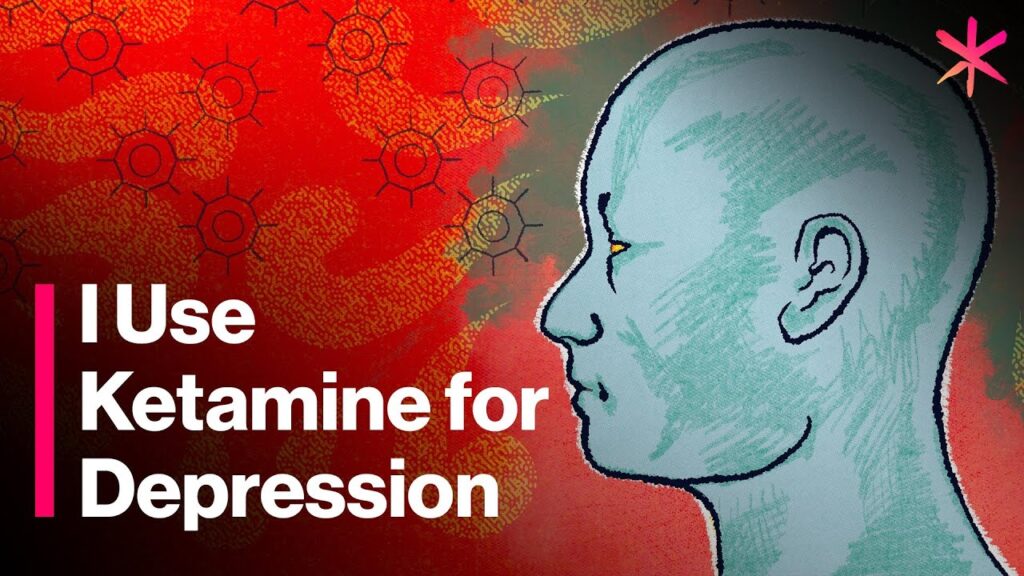The first question that arises in each mind is what is ketamine? At first, it was only used in the operation rooms as an anesthetic. Now it is not only used as an anesthetic. It is also used as a treatment for major depression all around the world.
According to a report in the US, almost 16 million people suffer from depression. Due to this major issue, the death rate also increased. It is estimated that from 1999 to 2016, the suicide rate increased to 30 percent. To overcome this ratio, ketamine is considered the main and leading therapy. So contact now to treat your depression issues.
Table of Contents
Why is ketamine exciting for treating depression?
If a patient suffers from depression, start using ketamine. Then it is the best therapy to decrease the suicidal rate. You can consider dangerous thoughts and acts suicidality. It also helps relieve other serious symptoms of depression. Ketamine is also the best option for anxiety along with depression.
According to science, it has been proved that chronic inflammation becomes the silent killer. So, it becomes the cause of several cardiovascular, cancer, and other issues. So, the need is to get different tips to fight against these issues.
Several other treatments and medications take much time to relieve pain or depression. This duration may be of weeks or even months. On the other hand, some patients need many sessions to get relief. It is only possible if you take other therapies, antidepressants, or stimulation. Among all, electroconvulsive treatment is the best to treat depression.
Are there different types of ketamine?
Though many types of ketamines are used to treat several issues, among all, two are the main types that help to treat depression. It treats only depression that is not affected by other medications.
- Racemic ketamine is considered as the infusion treatment in the bloodstream. The other name for this treatment is intravenous or IV. In this therapy, two molecules, “R” and “S,” are present that are mirror-image molecules. It was approved as an anesthetic many years ago by FDA.
- Esketamine treatment was also approved by FDA in March.
Both of these types interact with receptors in different ways. The type of ketamine therapy given to patients impacts the activity of the drug. We are still unable to know which form is more effective. So further research is required to know the effect and side effects.
How does ketamine work?
Though the working of ketamine is still unclear. Ketamine work as an antidepressant that has a new effective mechanism. It helps patients to get rid of depression issues that have not been treated with other therapies.
Ketamine binds to the NMDA receptor present in the brain. After binding, ketamine help to increase the production of glutamate. It is the main neurotransmitter that produces between neurons. Glutamate also starts the activation of other receptors known as AMPA receptors. Both these receptors combine to form a new molecule. These molecules help to link neurons with each other. It helps the patient to enhance mood, thoughts, and patterns.
Ketamine also helps to treat depression in many other ways. It helps to reduce signals of inflammation that are linked to mood. It also helps to make connections between specific parts of the brain. It means that ketamine work in many possible ways.
What else should you know about ketamine?
If you want to treat depression, then you have to give a low dose of ketamine. While in case of anesthesia, you need a high dose.
Like other substances, ketamine also has addictive features. So, you must know its benefits and side effects before using it. If the patient already has used substances with addictive properties. Then he or his doctor must check whether ketamine is good or not.
After taking IV ketamine, patients respond after 2 to 3 infusions. But if no response is seen, then no other infusions are effective. So, it is good to try other therapies or treatments for depression.
Final Verdict:
Suppose the patient is taking ketamine therapy and feel effects after 2 to 3 infusions. Then further treatment helps the patient to feel more positive effects. Taking regular sessions at https://truhealthwellness.net/ketamine/ for ketamine help to get positive effects. It also helps to get rid of symptoms of depression. Commonly eight sessions of therapies are effective in controlling symptoms of depression. After this doctor decide whether to continue treatment or not.
background:
Severe depression is one of the worst conditions. It usually takes several weeks (usually 4-12 weeks) to improve symptoms with conventional drug therapy. Ketamine is an N-methyl-D aspartate receptor antagonist, and early work on symptoms of depression begins.
Objectives:
The effect of ketamine subanesthetic doses on the symptoms of depression and anxiety has been assessed. After treatment with ketamine, the severity and improvement of the disease were assessed.
Materials and methods:
Twenty-five drug addicts / naive male patients, major depression and psychiatric disorders, head injuries, organic disorders, cardiovascular disease, drug addiction. Assessment was mainly based on and administered with ketamine hydrochloride injection at a dose of 0.5 mg / kg intravenously at a sub-anesthetic dose. The evaluation is repeated 1 hour after the first dose. Six doses were given within 2 weeks and the assessments were repeated. The final assessment was made 1 month after the last dose.
Results:
Depression, anxiety, and the severity of the disease improved 2 weeks and 1 month after the last dose of ketamine. 1 hour after the first dose, there were significant changes in depression and anxiety, but not in the severity of the disease. In some patients, the adverse effects were observed and resolved within 1 hour.
Procedure:
Patients who fasted for at least 6 hours for ketamine. Injected ketamine hydrochloride under sub-anesthetic dose, the total weight of the patient is 0.5 mg / kg. The total amount of the drug is dissolved in distilled water at a ratio of 1:10. The last volume was given slowly (within 2 minutes) to be i.v. HAM-D, HAM-A, CGI were performed within 1 hour after completion of the first dose of ketamine. Ketamine was also used on Day 3, Day 6, Day 9, Day 12, and the last 14 days. Six sessions of ketamine were given within 2 weeks. At the end of the last dose of ketamine, normal treatments such as antidepressants such as the serotonin reductive inhibitor began. Rates were made 1 month after the last dose, despite receiving antidepressants.
Visit TheInspireSpy

